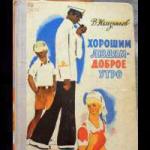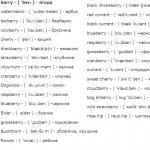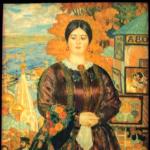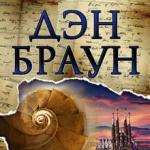Yunna Moritz is the author of books of poetry, such as “Face” (2000), “In this way” (2000), as well as poetic children’s books “Bouquet of Cats” (1997), “Big Secret for a Small Company” ( 1987). Many songs have been created based on Moritz's poems.
A short biography of Yunna Moritz proves that she is a good artist. In her books there are many sheets of author's graphics, which are defined as poetry.
Yunna Moritz was born on June 2, 1937 in Kyiv. Then her father was also arrested, and after a while he was released, but after that he became suddenly blind. The poetess stated that it was this feature of her father that had a great influence on the development of her worldview.
In 1954, Yunna graduated from Kyiv school and enrolled in the philological department of Kyiv University. At this time she began her early periodic publications.
In 1955, the poetess entered the Literary Institute in Moscow to study poetry. She graduated from it in 1961, despite the fact that in 1957 she was expelled from there for “wrong sentiments” in literature.
In 1961, Yunna’s first book, Cape Desire (in honor of the cape on Novaya Zemlya), was published, which was based on the mood after a trip to the Arctic in the summer of 56.
Her books were refused publication because of the poems “In Memory of Titian Tabidze” and “Fist Fight”. From 1961-70 (at that time there were “black lists” for publishing houses and censorship), as well as from 1990-2000. they didn't come out. But even with the ban, “Fist Fight” was published by the head of the department of the Young Guard publication, Vladimir Tsybin. After this he was fired.
Lyrics in verse by Yu. Moritz
The lyrics of resistance are present in the book “By the Law - Hello to the Postman,” as Yunna Moritz herself openly states. Her biography also mentions the poem “The Star of Serbia” (about bombs in Belgrade), which is dedicated to human dignity and life. It is published in the book “Face”. The prose cycle “Stories about the Miraculous” is also devoted to the same topics. These works were published in Literaturnaya Gazeta and abroad. Then they were combined into one book.
The poetess wrote her lyrical poems in the best classical traditions, but at the same time they are completely modern, like Yunna Moritz herself. The biography lists the poetess's literary passions as Pushkin, Pasternak, Akhmatova, Tsvetaeva, and her teachers as Andrei Platonov and Thomas Mann. The writer includes Khlebnikov, Homer, and Blok among her poetry.

The language of Yuna Moritz's poems
The poetess’s language is simple and natural, without unnecessary pathos. She uses precise rhymes along with assonance - all this distinguishes her poetry from other authors. Her poems often contain repetitions and metaphors, which Yunna Moritz specifically incorporates into her works. The biography says that in her works the writer tries to get to the essence of existence.
Y. Moritz wrote scripts for the cartoons “The Boy Walked, the Owl Flew” and “A Big Secret for a Small Company.”
Her poems were translated by Thomas Whitney, Elaine Feinstein, Lydia Pasternak and others. The author's works have been translated into all languages in Europe, also into Chinese and Japanese.
Yunna Petrovna Moritz received the Russian Triumph Prize, the Italian Golden Rose, and the national Book of the Year.
Creation
The writer dynamically and multidimensionally compares and contrasts life and creativity. For her, art is an irreplaceable part of life, which has equal rights in relation to man and nature and does not need to be justified by artistic goals, as Yunna Moritz herself defines. The biography of the poetess describes her lyrical heroine.
The character of the poetess's lyrical hero is distinguished by his extraordinary temperament, categorical judgments, and uncompromisingness. All this leads to isolation.
The poetess used the style of the “Silver Age”. In his literary practice, Moritz continues the Akhmatova and Tsvetaeva traditions. Also, her poetry echoes Blok’s world (connects the high and the low). The work of Y. Moritz is an example of the harmony of the impulses of poetry, which are obtained from the symbolist, futurist and acmeist artistic systems.

The poetess received her individual style in the early 60s, and her further literary path is the realization of identified opportunities. Here Moritz refers to poets without history, as Tsvetaeva said. Her poems are devoted to the eternal themes of life and death, creativity and love. She also translated foreign poets - Moses Teyf, Miguel Hernandez and others.
Yunna Moritz, biography for children
Y. Moritz presents childhood as the mystery of the world order and the mystery of poetry. Her poems for children are distinguished by humor, paradox, and kindness. The birth of a son and a more loyal attitude towards children's literature in publishing houses prompted me to write poetry for children. In children's books, Yunna Petrovna shows a paradise in which miracles and fairy tales happen. A dream turns the real world into a fantasy one.

An important place belongs to epithets (“crimson” cat, “rubber” hedgehog). They are accurately perceived by readers.
Yunna Moritz's poems are distinguished by their musicality. Thanks to this, many poems became songs - “Rubber Hedgehog”, “Dog can be biters”, etc.
In his children's poems, Moritz shows joy, sometimes loud and festive, sometimes muted and lyrical (“Bouquet of Cats”). Her poems are also heard in theatrical productions.
One of the outstanding poets of our time can rightfully be called Yunna Moritz, whose work was and continues to be the very embodiment of sensitivity. Poems full of genuine perception of reality have been translated into many languages of the world. The biography of the poetess is saturated with troubles brought by her very year of birth. However, none of the hardships of fate could break Yunna’s spirit. Having overcome everything that was destined for her by chance, Moritz found her true destiny and for many decades she has been delighting not only Russian audiences with her poems, but also foreign admirers. The years of ban on the publication of her work were compensated for at a time when people gained freedom of speech and creativity.
Themes of Yunna Moritz's poems:
The directions in Moritz's work once again prove her undoubted talent. During the years of oppression, she develops as a children's poetess. Her poems, filled with instructions that are easy to understand for the younger generation, also surprise older individuals, many of whom leave their favorite lines in their memory and happily re-read them later. Moritz's lyrical works are performed in the best traditions of classical performance. Her poetic style does not allow pathos, giving preference to precise rhymes and allegories.
Private bussiness
Yunna Petrovna (Pinkhusovna) Moritz (78 years old) was born in Kyiv into a Jewish family. As Moritz herself says, her father was arrested based on a slanderous denunciation in the year of her birth. After several “torture months” he was found not guilty and released, but after his return he began to quickly lose his sight. “My father’s blindness had an extraordinary influence on the development of my inner vision,” the poetess later wrote. Mother, in her own words, “graduated from high school before the revolution, gave lessons in French and mathematics, worked in the arts, as a nurse in a hospital, and as necessary, even as a woodcutter.”
During the war from 1941 to 1945, the family lived in evacuation in Chelyabinsk, where the father worked at a military plant. At the end of the war they returned to Kyiv.
In 1954, Yunna graduated from school and entered the correspondence department of the Faculty of Philology of Kyiv University. By this time, she had already begun to be published - Moritz’s first poems were published in the magazine “Soviet Ukraine” in 1955. In the same year, she entered the full-time poetry department of the Literary Institute. A. M. Gorky in Moscow. Since the scholarship was not enough to live on, Yunna worked at night as a proofreader in a printing house.
In the summer of 1956, she set sail across the Arctic on the icebreaker Sedov and visited Novaya Zemlya. This journey, communication with the conquerors of the Arctic - winterers, pilots, sailors, had a great influence on Yunna. “The laws of the Arctic community influenced my 19-year-old personality so much that I was very quickly expelled from the Literary Institute for the “increase in unhealthy moods in creativity,” she wrote in her autobiography. She was expelled along with Gennady Aigi and Bella Akhmadulina for a year - with a probationary period. A year later, Yunna was reinstated at the Literary Institute, which she graduated in 1961.
In 1957, at the height of Khrushchev’s thaw, Yunna Moritz’s first poetry collection, “Conversation about Happiness,” was published. In 1961 - the book “Cape Zhelaniya” (named after the cape on Novaya Zemlya), written under the impression of a trip to the Arctic. After that, from 1961 to 1970, Yunna Moritz’s books were not published - because of the poems “Fist Fight” and “In Memory of Titian Tabidze” (“A Star Falls on Mtskheta...”) written by her. After being blacklisted, the poetess switched to poetry for children. In 1963, in the magazine “Youth” under the heading “For younger brothers and sisters” she managed to publish a series of her poems.
In 1970, Yunna Moritz’s collection “The Vine” was published, in 1974 - “A Harsh Thread”. Further books of poetry were published: “In the Light of Life” (1977), “The Third Eye” (1980), “Favorites” (1982), “Blue Fire” (1985), “On this High Shore” (1987), “Portrait of Sound ", published in Italy (1989) and "In the Lair of the Voice" (1990).
For the next 10 years - from 1990 to 2000 - Yunna Moritz's books were not published again. At this time, she was known for her democratic views and made political comments on Radio Liberty.
In the 2000s, poetry collections “Face” (2000), “In this way” (2001), “According to the law - hello to the postman” (2005) were published. The books were illustrated with drawings by the poetess herself.
In 2000, Yunna Moritz was awarded the Triumph Prize, awarded by the Russian Independent Foundation for the Encouragement of High Achievements in Literature and Art. In 2004 she became a laureate of the Andrei Sakharov Prize “For Courage in Literature.”
There is little information about the personal life of Yunna Moritz and it is fragmentary - the poetess never advertised her. In the 60s, her husband was the famous translator of Estonian literature and poet Leon Toom - “one of the most romantic figures of literary Moscow in the 50s and 60s.” Toom died tragically in 1969, falling from a window. Subsequently, Yunna married the writer Yuri Shcheglov (Yuri Varshaver).
Yunna Moritz's son, Dmitry Glinsky (Vasiliev), graduated from the Faculty of Philology of Moscow State University. He currently serves on the Commission on Jewish People of the UJA-Federation of NY and the Commission on Immigration Issues of the New York Chapter of the American Jewish Committee. Dmitry is also the founder and president of the Russian-speaking Community Council of Manhattan and the Bronx.
Yunna Moritz
What is she famous for?
Yunna Moritz is the author of many poetry books, but the vast majority of our fellow citizens know her precisely as a children's poetess, on whose kind and eccentric poems more than one generation of Russians grew up. “The Rubber Hedgehog”, “The Pony Runs in a Circle”, “A Big Secret for a Small Company”, “Dogs Can Bite” and other children’s poems by Yunna Moritz have already become real classics. Many of them were set to music and became famous performed by Sergei and Tatyana Nikitin.
The poetess's poems have been translated into many European languages, as well as Japanese and Chinese.
The work of Yunna Moritz in recent years (in particular, the series of poems “Not for Print”) causes fierce controversy and is viewed, rather, not in the context of literature, but as rhymed journalism of a protective nature.
What you need to know
In addition to writing her own poems, Yunna Moritz did a lot of poetic translations. In particular, she translated Oscar Wilde, Federico Garcia Lorca, Cesar Vallejo, Konstantinos Cavafy, Ovsey Driz, Rasul Gamzatov, Taras Shevchenko, Moisey Teif.
Turning to the work of the poet Moses Teif aroused Yunna Moritz's interest in the Jewish theme. In 1964, Teif’s poetry collection “Handshake” was published in her translations, which the poet himself valued very highly, as most consistent with the spirit of the original. The collection was a success, and the famous poignant poem “Kikhelech and Zemelech” (“Near the bakery on Gorky Street”) was set to music by composer M. Dunaevsky. The song, written in 1967, was performed in the play “The Tale of Tsar Maximilian” at the “Our House” studio at Moscow State University. And although the song was subsequently banned from being performed at performances, it has already gained great popularity and “went among the people.”
Subsequently, the poem entered the repertoire of the theater “At the Nikitsky Gate” by Mark Rozovsky, who created from it a small play of one poem “Kikhelech and Zemelech”.
Direct speech
About traveling in the Arctic: “I never forget the people of that Arctic, where I saw a completely different way of life, not the mainland, without any shops, streets, cinemas, there life depended on radio operators, on radiation, navigation, aviation, ice reconnaissance, there space is inside a person . In the mirror of the Arctic you can see who you are and what is the value of your personality, your actions, your mind and talent to be human. The feeling of the Arctic is a gift of fate, especially at 19 years old, it is divine wealth and frost resistance to “public opinions.”
About your teachers: “My contemporary was always Pushkin, my closest companions were Pasternak, Akhmatova, Tsvetaeva, Mandelstam, Zabolotsky, and my teachers were Andrei Platonov and Thomas Mann.”
About women's poetry: “Every Russian poetess who was born forty to fifty years later than Anna Akhmatova and Marina Tsvetaeva is doomed like a Spartan baby: life for the strong, death for the weak.”
About poems for children: “There was and is some kind of stupid prejudice that an “adult” poet can never be a “childish” poet and vice versa. And I proceeded from the fact that adults read books to children and only then do children begin to read poetry themselves. So I wrote poems for children that would be interesting to both adults and myself. I wrote for children with ecstasy, my ears flapping in absolute freedom, which I still do with great pleasure.”
About "black lists": “I am convinced that all the “black lists” in the department of literature, always and now, are composed by some writers against others, because repression is a very profitable business.”
Thematic table of contents (Alien)
Yunna Moritz has a website where she posts poems dedicated to political events and her attitude to today's life.
Here are some of them. Below there are poems about the war on Victory Day, about Moses, who spent 40 years starving the worthless people in the desert, about the “spoiled gene pool” that the reformers discovered in everyone except themselves.
x x x
If only I had been crooked these years
Spent time on another planet,
I could be in Russia today
Stomp your magic foot loudly!..
To begin with, I would download the right,
Much like an exile, -
I would receive gratitude
Because I completely survived.
And Russia would be guilty
For my life in a foreign land,
But Yunna Petrovna screwed up
Your irrevocable happiness.
I won't come back from anywhere now,
Because I stayed here
Look at the Russian miracle,
To his Samoyed devil,
To his mechanisms of contempt
To a country that has not escaped anywhere,
Where in the air are poems
My Reader is walking towards me.
He is the inhabitant of the poet's moon,
The owner of a poetic string,
Reader who has not escaped anywhere
A country that has not escaped anywhere.
MORAL STANDARDS
In a decent society that is free?..
In a decent society of bombings and blockades,
Revolutions packaged in a poster
Freedom - to defeat anyone?
In a decent society, where the hegemon shits?
Is brutal torture legal in polite society?
In a decent society, where there is an abundance of horror -
The greatness of the hegemonic hormone?
In polite society, where it is indecent to be
Russia?.. In this excellent society?..
No, I’d rather be indecent in society,
Let your rules of decency be forgotten!
* * *
I love you, as they love everything that passes by
It rushed by without killing when it could have.
I love you and I am loved by you
Because they didn’t kill, but they could have,
When I was bombed on the train,
Falling face down on broken glass,
And miraculously came out of the fire and smoke
Into the space where the ships were burning,
Tanks, planes, people were burning,
Earth and sky, blood poured from the eyes.
I love you with all the memory of a miracle,
Which saved me from you.
My angel in that war was red, red,
And I was five years old, and now I’m a hundred.
I love you so ardently, so passionately,
God forbid you forget why.
B I B L I Y B A B L A
How long can we celebrate this Victory Day?..
Isn't it time to celebrate, brothers, Bubble Day?
If Russia had been destroyed by the Nazis,
They restored order by dissolving the Gulag,
We, like Europeans, would be fragrant,
The European flag would fly above us.
Let our Victory not tease anyone, -
Let's tear this nasty thing out of our brains, brothers!
There was no Victory, there was a family holiday,
Just a party!.. No enemies
There was no trace!.. Just our grandfathers
There were Stalinists, believing the scoundrel.
They are the only ones who need this Victory Day,
To rattle orders on the parade ground.
Grandfathers are dying out - twenty thousand a year,
And when the last one collapses into paralysis,
It is necessary, brothers, to flog him publicly
For the shame of Victory, for Victory game!
There was no Victory, there were only troubles,
Stalin's delusions, brutal deeds.
Stalin slipped us the Bible of Victory -
This disgusting thing! - instead of the Bible Bubble.
WAY
How does a pilot burn excess fuel?
And makes extra circles in the sky, -
So Moses walks in circles,
Burning surplus brains in the desert
The generation that is for Moses
It deteriorated in slavery, became superfluous...
For forty years, the desert has been sowed with bones,
This sacrifice will be entered into a contract with the Almighty.
Under such a contract as excess fuel,
Extra people in the picture are burned
Modernization!.. Joyfully, screamingly,
Indestructible, trumpeted from now on:
"I wish they would die out soon!
Everybody got spoiled in slavery!
Burn out the empire of slave morality!
Where is Moses?!" He is everywhere, of course.
It's scary to say, but everywhere, everywhere,
Where a person is simply exterminated -
The spirit of Moses works honestly,
Even - oh horror! - in the hell of the Holocaust.
And the clergy with "people from art"
They console us, dispelling doubts:
The extra ones will die out without any extra crunch, -
Our desert is full of Moses.
GENE POOL
Big business is coming
To save, to pull by the hair,
For our mineral resources and forests
Russia!.. Money sausage
I've blown my sails,
This is our pride and beauty -
Big business is coming!
Armed with the power of words
It's easy to turn us into donkeys
And out of impudence, take it for a show off:
"You destroyed the gene pool!
You are historical scum
And finishing you off is not a question!
No gene pool - no country,
You must commit suicide!"
We committed suicide by a third,
But that’s not enough!.. Watch
We must go to the future!.. From now on
In another third we will commit suicide, -
Then big business
They'll drag us out by the hair,
For our mineral resources and forests, -
And we’ll finally get drunk with happiness -
We've shrunk by two-thirds!
Our gene pool is pure dirt,
Hurry, let's kill ourselves quickly!
Then big business
And we will be taken to heaven,
And our geniuses and talents
It won't harm them either,
Technological bows
Stamping for other people's victories, -
There weren’t and aren’t any of our own?!?
We destroyed the gene pool?!?
To show off our impudence -
Just a piece of cake, turning into donkeys
Armed with the power of words?!?
No gene pool, no country,
Should we commit suicide?!?
Big business is coming -
That's gene pool heaven?!?




